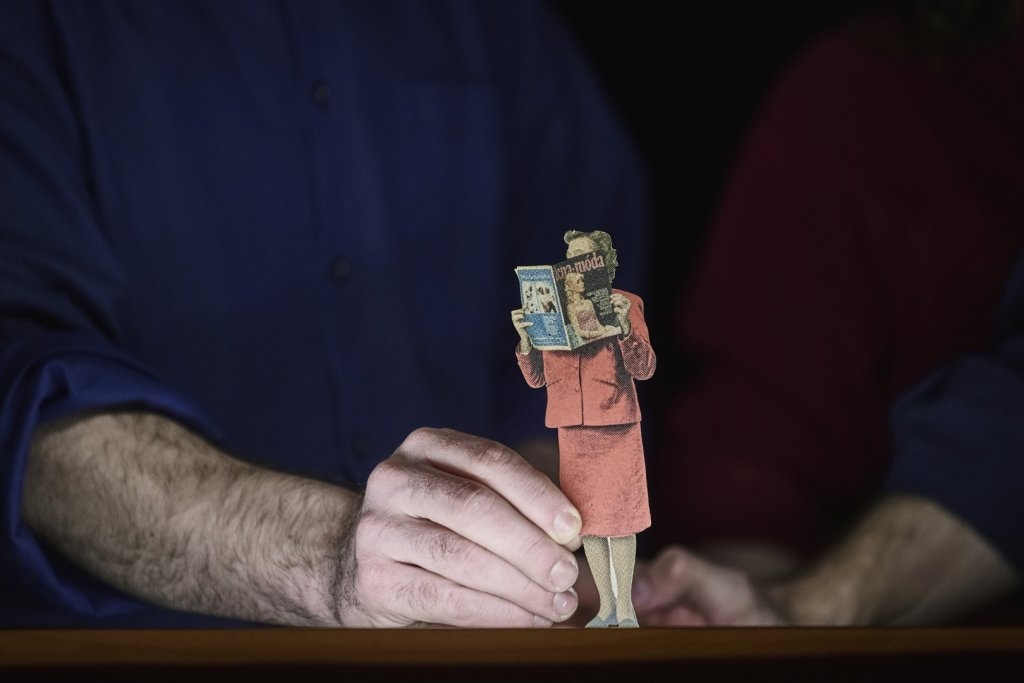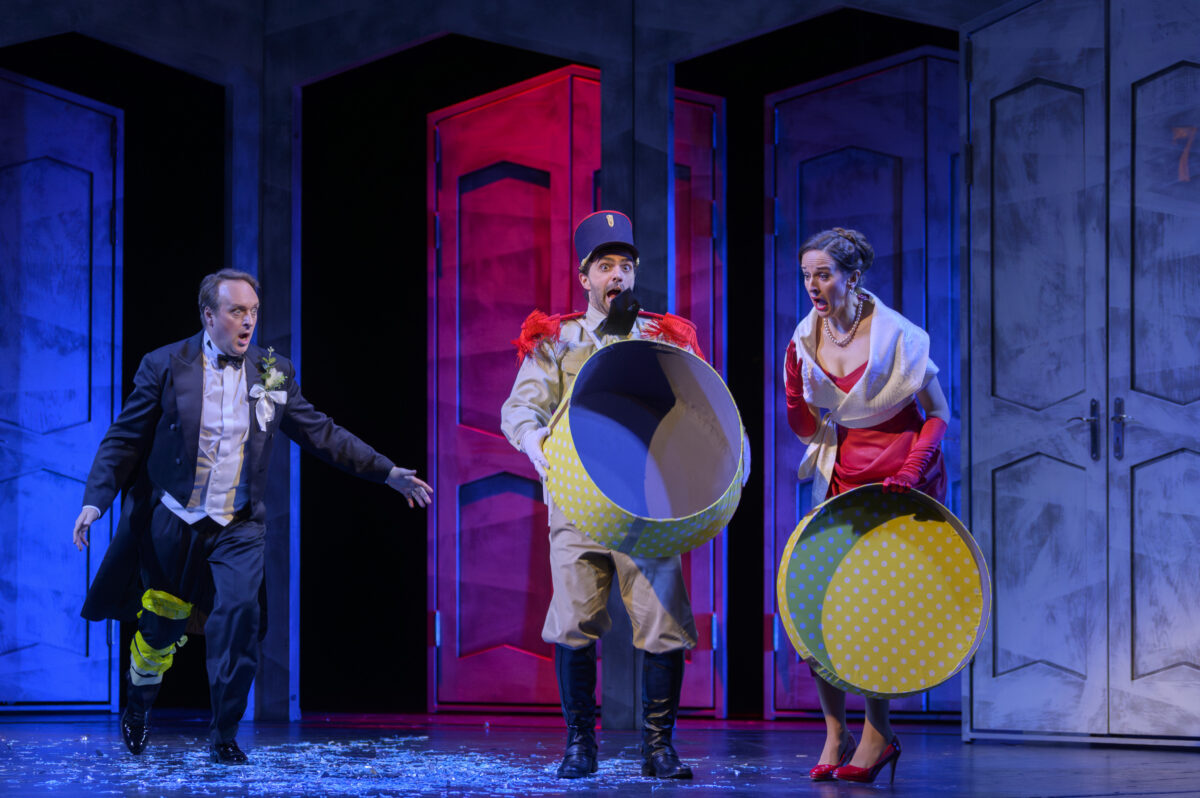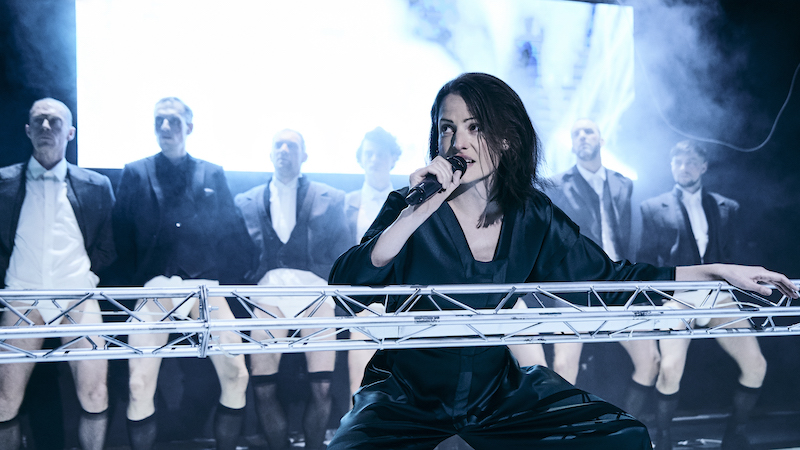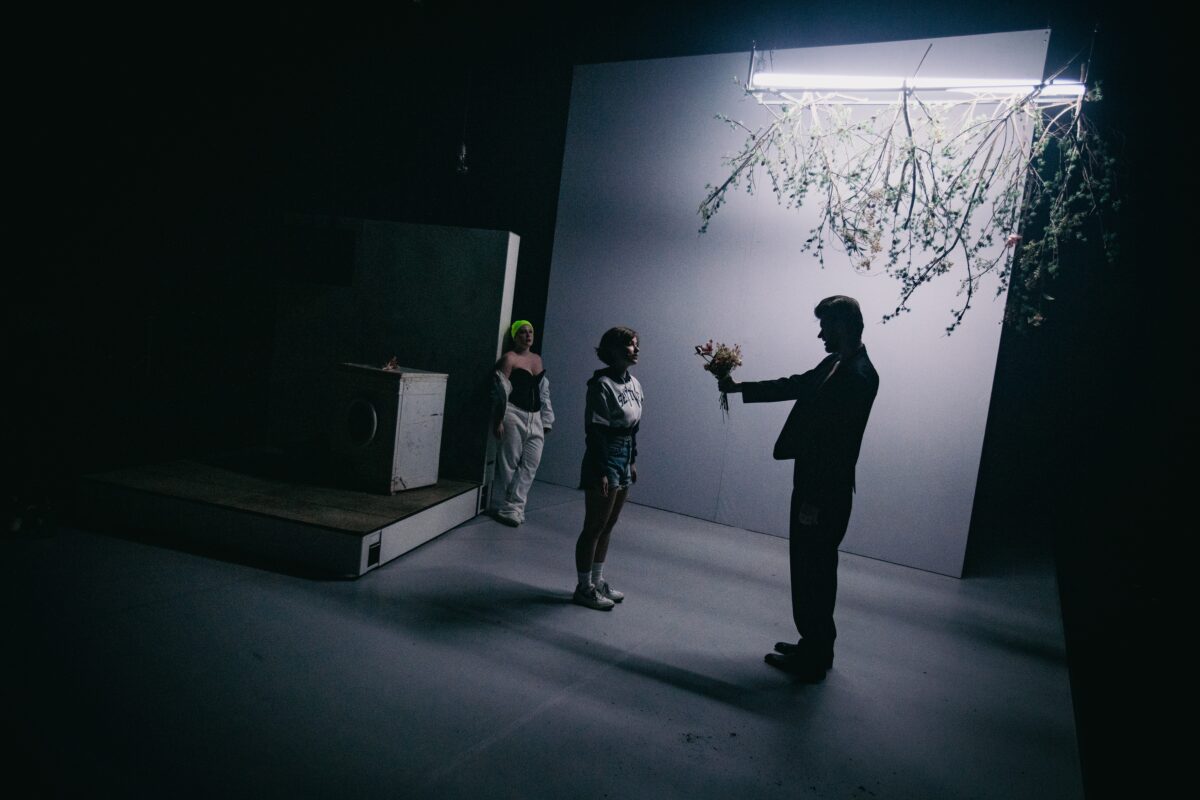Boris Klepal
It doesn’t work with him, but nor does it work without him – thus might the relationship of Czech culture to Bedřich Smetana be paraphrased. March 2024 marks the passage of 200 years since the birth of the composer, who made up his mind to incorporate the most progressive trends of the time into Czech music. He certainly succeeded.
Impulses from the whole of Europe collided in this artist, who lived from 1824 to 1884, radiating from him in a single, distinct flow. This injected a strong dose of energy, which remains in Czech music to some degree to this day. Smetana’s pioneering uniqueness made him both an idol and an easy target.
When the first bust was installed in the foyer of the National Theatre in Prague, it was, understandably, a likeness of Bedřich Smetana. On that occasion, Smetana’s first rigorous interpreter and advocate, the aesthetician Otakar Hostinský, spoke of him not only with the expected love and respect, but also as a martyr, who sacrificed himself for the nation.
Happily, the current project Smetana 200, an online portal covering performances of the composer’s work across the Czech Republic, makes no mention of martyrdom. Still, though, it ranks Smetana among those who “manage to uplift their nation, and with it, to influence the whole world through their talent”.[1]
According to the leading contemporary conductor Tomáš Hanus, the music director of the Welsh National Opera, Smetana has become representative of official culture: “He has become something of a museum piece, to whom respect must be paid.” This year, Hanus presented a new production of Smetana’s tragic musical drama Dalibor in Brno and says that it is always necessary to surmount barriers when interpreting his music. With Czech audiences, this barrier has been respect, which is perhaps more associated with the monument than the composer himself. Abroad, it is more often to do with a lack of trust in his most complex works.
A national myth surrounds Smetana, which clearly suits conservatives, but also seems out of place in a globalised world grappling with artificial intelligence. Today it is also perhaps more difficult to understand that in Smetana’s day, patriotism was a progressive position and a social responsibility.
His first opera, Braniboři v Čechách (The Brandenburgers in Bohemia), brought the composer great success; in addition to the rousing music, it was also a clear rejection of German dominance. Immediately after World War II, it made an entirely logical return to the stages of the National Theatre and today’s State Opera, where it was even performed on a stage laid out in the shape of a swastika. The question is what to do with The Brandenburgers in Bohemia today, when Germany is one of the Czech Republic’s biggest trading partners, as well as its ally in the EU and NATO.
After the ceremonial laying of the foundation stone of the National Theatre in 1868, the first performance of the opera Dalibor took place in the evening. Smetana, however, who had uttered the phrase “the life of the Czechs is in the music” when tapping the stone, alluded to a dark, heroic theme. Having glorified the Czech element and the Prague poor in Brandenburgers and after the effervescent, almost operetta-like Prodaná nevěsta (The Bartered Bride), he exposed the audience to something deadly serious, with no happy outcome.
In the most recent Brno production, British director David Pountney retold the story of a rebellious knight from the time of King Vladislaus II in contemporary language. This allowed him to make sense of the illogicalities in the libretto and also to emphasise the influence of Richard Wagner. In the end, Dalibor – who has already died – encounters the deceased Milada, who has sacrificed herself for him. Together they embark on a journey “to the heights of heaven”. The similarity to the finale of Wagner’s The Flying Dutchman is no accident.
Libuše, which Smetana described as a “glorious tableau”, resists staging; it is more of a staged oratorio than an opera. For this year, the National Moravian-Silesian Theatre rehearsed a complete cycle of Smetana’s operas, which will be presented twice in the days between the author’s birth on 2 March and his death on 12 May. Libuše is the only work in the program to be presented not as theatre, but in a staged performance in collaboration with the Janáček Philharmonic Ostrava.
The sheer number of presentations of Smetana’s works across the Czech Republic this year has been helped by the fact that organisers can draw on support from the Ministry of Culture as part of the Rok české hudby (Year of Czech Music) program. However, the program for the 200th anniversary of Smetana’s birth was announced only following a government resolution in July of 2023. In the world of classical music and opera, something may be hastily put together in less than a year, but serious preparation is impossible.
Smetana thus encounters another hurdle, as if there were not enough in the music itself. Of course, this does not mean that the music is bad – it is wonderfully written, full of ideas and intellectual structures. This native of the East Bohemian town of Litomyšl was neither a natural phenomenon nor a reproducer of Czech folk songs.
His talent was demonstrable in childhood, and he had a good musical education. As a youth, he heard the works of Franz Liszt and Hector Berlioz in Prague and, thanks to his teacher Josef Prokschov, he also met both of these prophets of neo-romanticism in person. In 1850s Prague, he was already able to experience the works of Richard Wagner: his operas Tannhäuser, Lohengrin and The Flying Dutchman were staged at the Estates Theatre by František Škroup, who evidently did more for Czech musical life than compose the song “Kde domov můj” (Where Is My Home), which would later become the Czech national anthem.
Smetana was obviously not the only patriot unafflicted by an aversion to everything German. Thanks to the Prague environment, the founder of Czech national opera had much upon which to build and could be compared to the founder of the second Viennese school, Arnold Schönberg, who based his originality on his ability to immediately imitate everything good he encountered.
It is possible to break Smetana down into small pieces and demonstrate the drama of Wagner here, the gaiety of Jacques Offenbach there, the musical poetry of Liszt and Berlioz elsewhere and the construction of a vocal number in the manner of Gioachino Rossini. The whole, however, is made up of music written in a personal, recognisable language. He is simply still waiting to be fully appreciated. Joyful or more classically constructed works, which are not clearly typical of Smetana, have already earned their place in the sun. Many others, however, remain in the shadows.
Conductor Tomáš Hanus observes with what distrust the symphonic poems Tábor and Blaník, the closing cycle of Má vlast (My Fatherland), are regarded abroad. They are usually performed without a pause and offer a restrained foretaste of heavy fighting and the natural idyll under which the army of St. Wenceslaus slumbers. However, they lack the immediate intelligibility of the four preceding poems. They do not sing to the accompaniment of harps about the ancient glory of the Czechs, they do not flow with the elegance of Vltava (The Moldau), they do not have the wild energy of Šárka or the dramatic beauty of Z českých luhů a hájů (From Bohemia’s Woods and Fields). It is similar with Smetana’s two string quartets: the first, titled Z mého života (From My Life), is one of the best-loved and most performed chamber compositions, while it is as if the fragmented structure of the second looks far into the future and demands a considerable amount of active audience participation.
Many years of experience show that if any music is to have a place in the world, it needs to be firmly established not only at home, but also in cultural centres of interest. In the end, the necessity of breaking through via major cultural centres also applies to The Bartered Bride, which attracted global attention after its success in Vienna in 1892. However, none of Smetana’s other operas have met with similar success, even though Gustav Mahler tried to promote them; he was successful neither with Dalibor nor with Dvě vdovy (The Two Widows).
For now, it seems that Smetana is still awaiting a bigger breakthrough, although some shifts are visible. Particularly in recent years, the entirety of My Fatherland has been performed abroad. Daniel Barenboim performed it with the Vienna Philharmonic in 2017, and this year, the Berlin Philharmonic is rehearsing it with current chief conductor Kirill Petrenko. The Prague Spring festival provided the impetus to both conductors, but both have performed or will perform the work outside the Czech Republic.
Smetana’s operas still encounter difficulties in reaching the wider world. By 1909, The Bartered Bride had breached New York’s Metropolitan Opera, later appearing at large theatres in Munich and Vienna. Other works, however, remained almost exclusively for a Czech audience – one contemporary exception being the comedy The Two Widows, performed in English by the Birmingham Opera Company, which will also be seen this year by audiences in Litomyšl, Prague and Lviv.
It appears that Smetana’s operas need a stronger wave of foreign perspective, free of the tradition and almost religious respect to which they are so firmly bound in the foundations of the Czech canon. Today they perhaps also bump up against the fact that they tend to be based more on the plots and the attitudes of the characters than on psychology, which is concealed in a second or third dimension.
The Two Widows possesses the elegance of old films. However, instead of offering an escapist comedy, the setting of wealthy estates could be transposed to today’s agriculturalists and agri-entrepreneurs. The emancipatory subject matter of Hubička (The Kiss), in which Lukáš shows Vendulka that men want to dominate loving women – until he apologies in public – is also waiting for a thorough treatment. In Tajemství (The Secret), the character of Counsellor Kalina, who finds meaning in life after a futile pursuit of happiness, has yet to play out his role as the Czech Faust. Čertova stěna (The Devil’s Wall) is also waiting for a more contemporary interpretation and features content – the easy interchangeability of good and evil, or perhaps white and black magic – that feels more contemporary than ever. Practically all of Smetana’s operas are struggling to attain universal resonance beyond the narrow confines of the environment in which they are usually performed. That they can attain it, however, is demonstrated by David Pountney, not only in this year’s Brno production of Dalibor,[2] but also in a 2001 production of The Devil’s Wall.[3]
If, however, Smetana’s operas are to be performed more frequently, they will also require modern editions of their scores, which current conductors are accustomed to and demand. Examples may be found in the critical editions of the operas of Leoš Janáček and Dvořák’s Rusalka published in 2023, as well as in the complete works of Bohuslav Martinů currently in progress.
The Year of Czech Music takes place regularly, once per decade. The initial impetus came from Smetana himself, who aligns with it due to the dates of his birth and death. Ideally, however, this year’s bicentenary should not just make a dent in ministerial subsidies, but, above all, in the minds of the cultural public.
Everyone can let an invigorating breath of fresh air into their minds and try to listen to Smetana’s music without the obligatory reverence or cultivated distrust of the national saint and martyr. They will discover an energetic and self-confident person who did not lose his creative power even with the loss of his hearing, and who was only overcome by a severe mental illness. They will find a composer who was able to handle intellectual structures so masterfully that they do not hinder the musical expression even for a fraction of a second. And in doing so, they will come to know the roots of modern Czech music.
An abridged version of a text published on 1 March 2024 in the online daily aktualne.cz.
Boris Klepal is a music journalist specialising in ancient and contemporary classical music and opera. He is also interested in sound art, acoustic ecology, terrain recordings, sound environments, landscapes and walks, music and sound in social contexts. He enjoys anything alternative and bizarre, including country. He half-enjoys writing about music, while also viewing it as divine punishment for all the assignments he missed in secondary school.
[1] Available at https://www.smetana200.com/.
[2] Bedřich Smetana – Josef Wenzig: Dalibor, direction: David Pountney, premiere 2.2.2024, National Theatre Brno – Janáček Theatre, Brno.
[3] Bedřich Smetana – Eliška Krásnohorská: Čertova stěna, direction: David Pountney, premiere 20.12.2001, National Theatre, Prague.
categories
Opera / Music Theatre

 Learn
Learn








